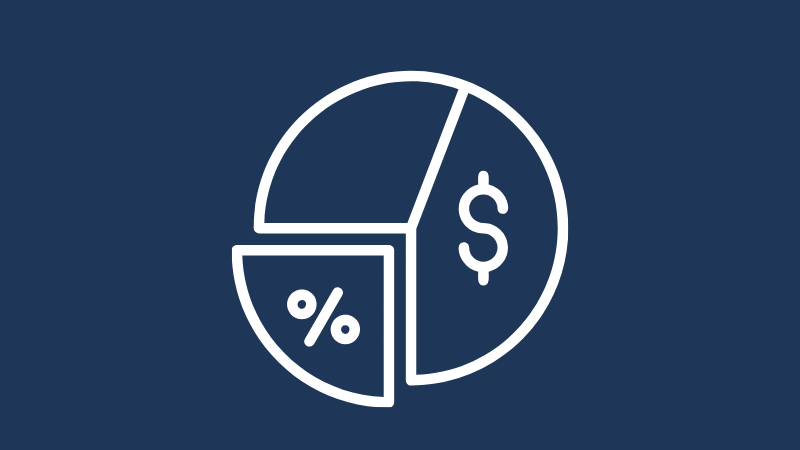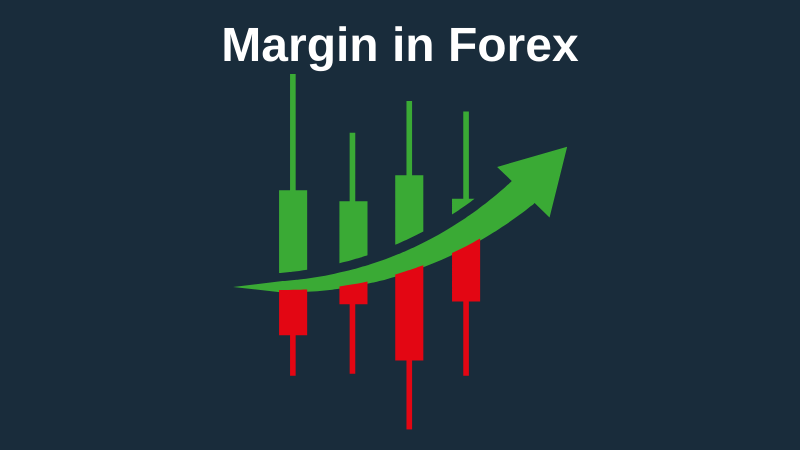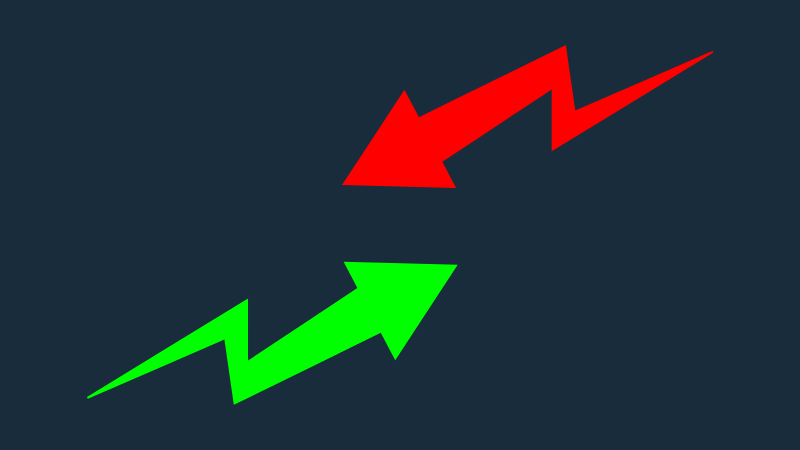Margin in Forex refers to the minimum amount of capital a trader needs to have in their account to open a position. Essentially, margin acts as a security deposit required by the broker, allowing traders to control larger positions than they would be able to with just their account balance alone. Due to the leverage effect in the Forex market, traders can handle a trade volume much larger than their actual capital. Margin is the collateral required for these leveraged trades.
For instance, if a trader wants to open a position worth $100,000 with a broker offering a leverage ratio of 1:100, they would only need a margin (or collateral) of $1,000 to do so. However, if the market moves against the trader’s expectations, the margin in their account can get depleted and become insufficient. In such cases, the trader might face a margin call or have their position automatically closed. Therefore, closely monitoring margin levels and risk management is crucial when trading in the Forex market.
Understanding Margin in Forex
The Basics of Forex Margin
Forex Margin is essentially the amount of capital a trader needs to open and maintain a position in the Forex market. It serves as a good faith deposit or collateral that a trader provides to their broker, ensuring the broker that the trader has enough funds to cover potential losses. It allows traders to control positions much larger than they could with their own capital alone.
Role of Margin in Leveraged Trading
In Forex, leverage allows traders to control a position that’s significantly larger than their initial investment. Margin is what makes leveraged trading possible. If a trader is given a 100:1 leverage by their broker, this means they only need 1% of the trade size as margin to open a position. For instance, to control a $100,000 position, a trader would need just $1,000 in margin. The role of margin in leveraged trading, therefore, is to act as a security deposit against potential losses from that position.
Margin vs. Leverage: Key Differences
While margin and leverage are often used interchangeably, they have distinct meanings. Margin refers to the actual amount of funds required from the trader to open a position. Leverage, on the other hand, is the ratio that denotes how much larger a trader’s position is compared to their margin. For instance, 1:100 leverage means the trader’s position is 100 times larger than the margin they’ve provided. In essence, while margin is about the money a trader commits, leverage is about the buying power that this money gives them.

Margin Requirements and Calculations
How Brokers Determine Margin Requirements
Brokers determine margin requirements based on several factors. The primary factor is the leverage they offer. A higher leverage ratio means lower margin requirements and vice versa. For instance, at 100:1 leverage, the margin requirement is 1%. Brokers might also adjust margin requirements based on the currency pair being traded, market volatility, and regulatory standards. It’s essential for traders to understand their broker’s margin requirements before entering trades.
Calculating Margin Used in Trades
To calculate the margin used in trades, one needs to understand the trade size and the leverage offered by the broker. The formula is:
Margin Used=Leverage RatioTrade Size
For instance, if a trader enters a trade for $100,000 at a 1:100 leverage, the margin used would be $1,000.
The Importance of Free Margin
Free Margin in a Forex trading account refers to the funds available to open new positions. It’s the difference between a trader’s equity (total balance) and the margin used in open positions. If a trader’s open positions go against them, reducing their equity, the free margin also decreases. If the free margin reaches zero or goes negative, the broker may issue a margin call or close some or all of the trader’s positions to prevent further losses. Monitoring free margin is crucial as it indicates the cushion a trader has before facing potential margin calls.

Managing Risks with Margin
What is a Margin Call?
A margin call occurs when the equity in a trader’s account drops below the broker’s required margin level. Essentially, it’s an alert from the broker to the trader, indicating that they don’t have enough equity to support their open positions. When a margin call happens, traders might be required to deposit more funds into their account or close some or all of their positions. If the trader does not act promptly, the broker might automatically close positions to bring the account back to the required margin level.
Strategies to Avoid Margin Calls
- Proper Risk Management: Always determine the risk involved in a trade and never risk more than a small percentage of your capital on a single trade.
- Regular Monitoring: Keep an eye on your account balance, equity, margin level, and free margin to ensure they’re within safe levels.
- Use Stop Losses: Setting stop losses can limit potential losses and help in preventing margin calls.
- Reduce Leverage: While leverage can amplify profits, it also magnifies losses. Using lower leverage can reduce the risk of significant losses.
- Stay Informed: Keeping updated with market news and economic events can help traders anticipate major market moves.
The Impact of Market Volatility on Margin
Market volatility can lead to rapid price swings, affecting the equity in a trader’s account. Increased volatility can cause trades to move against a trader more quickly than anticipated, eating into their margin. As a result, traders might face margin calls more frequently during volatile times, especially if they’re using high leverage. Understanding and anticipating market volatility can help traders adjust their strategies and margin requirements accordingly.

Practical Implications of Forex Margin
How Margin Affects Trading Strategy
Margin can significantly influence a trader’s strategy. With the ability to control larger positions using smaller amounts of capital, traders might opt for different trading styles. For instance, with higher margin, day traders might open and close positions more frequently. However, it also means that traders need to be more vigilant, as the room for error is reduced and losses can accumulate quickly.
The Relationship Between Margin and Stop-Out Levels
Stop-out level refers to the point where a broker starts closing a trader’s open positions to prevent further losses and ensure the account doesn’t go into a negative balance. This level is closely related to margin. If a trader’s equity falls to the stop-out level, it means their free margin has been exhausted. The relationship is crucial as traders should always be aware of their broker’s stop-out levels and set their strategies accordingly to avoid unexpected position closures.
Margin Benefits and Potential Pitfalls
Benefits:
- Enhanced Buying Power: Margin allows traders to control large positions with a relatively small capital.
- Flexibility: Traders can diversify their positions and strategies due to the increased buying power margin offers.
Potential Pitfalls:
- Amplified Losses: Just as profits can be magnified, losses can be larger than the initial investment.
- Margin Calls: If not managed correctly, traders can quickly find themselves facing margin calls, which can be stressful and costly.
- Potential Debt: In some extreme cases, if positions move against a trader rapidly, they might end up owing money to the broker.

Frequently Asked Questions about Margin
What is margin in Forex trading?
Margin is the minimum amount of capital a trader needs to open and maintain a leveraged position in the Forex market.
How is margin different from leverage?
Margin refers to the required deposit to open a position, while leverage indicates the ratio of the trader’s position size to their margin.
What happens when a margin call occurs?
A margin call arises when a trader’s equity falls below the required margin, prompting them to deposit more funds or risk having positions closed by the broker.
How is margin calculated in Forex?
Margin is calculated based on the trade size and the leverage ratio provided by the broker; it’s essentially the fraction of the trade size determined by the leverage.
What does “free margin” mean?
Free margin is the amount of money in a trading account that is available to open new positions, calculated by subtracting used margin from total equity.
Why is margin important in Forex trading?
Margin allows traders to control larger positions with a small amount of capital, maximizing potential profits but also amplifying potential losses.
How can traders avoid margin calls?
Traders can avoid margin calls by using proper risk management, setting stop losses, and regularly monitoring their account balance and margin levels.
Do all brokers have the same margin requirements?
No, margin requirements can vary between brokers due to differences in leverage offerings, regulatory environments, and internal policies.
Is it possible to lose more money than deposited due to margin?
Yes, especially in highly volatile markets, losses can exceed deposits, although some brokers offer negative balance protection to prevent this.
How does market volatility affect margin levels?
Increased market volatility can lead to rapid price fluctuations, affecting the equity in a trader’s account and potentially leading to margin calls.
